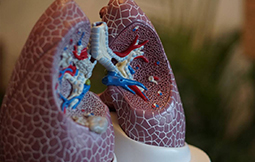
Lung transplant is a surgical procedure in which the surgeon replaces a diseased or failing lung with a healthy lung, usually from a deceased donor. It further helps the patients to breathe easily and grants many more years of life.
Lung transplant is a surgical procedure in which the surgeon replaces a diseased or failing lung with a healthy lung, usually from a deceased donor. It further helps the patients to breathe easily and grants many more years of life. A lung transplant may involve replacing one of your lungs or both of them, depending on the medical condition of the patient.
You will be recommend a Lung transplant when the lung is failing because of any of the below-mentioned disease:
There are few tests recommended before the surgery to assess whether you should take the operation or not. some of these tests include
Follow your exercise regime which you learned during pulmonary rehabilitation. You will be asked to stop smoking and drinking alcohol and do not put on weight.
Transplantation is performed under general anesthesia. And It takes approx 4 to 8 to last. There will be thin, flexible tubes (catheters) that will be put in your neck, wrist, under the collarbone (subclavian), or the groin. These tubes are used to monitor your heart and blood pressure, and to take blood samples. Following that, you will be given general anesthesia. The catheter will be put into your bladder which will keep your bladder content free. Then the surgeon will make a cut in your chest to assess the main airway and replace the diseased lung with the donor’s lung. In some cases, a double lung transplant is required, in that case, a heart-lung bypass machine will be connected to you.
Post-Lung Transplantation the patient will be monitored in ICU for 3 to 5 days. A ventilator is placed to help the patient breathe effectively. There’s a tube in the chest, inserted during the procedure, that further helps in draining fluids from lungs and heart. The patient gets discharged in 10 to 15 days after the surgery. For almost 3 months, the patient is asked to have frequent consultations along with a few other tests like blood tests, chest X-Ray, ECG will be recommended. Smoking and alcohol consumption are strictly disallowed. Immunosuppressants and blood-thinning medications will have to be taken for the rest of life.
Liver transplant is a complex surgery, however, it involves several risks and complications. Major risks include
Copyright © 2025 IMA | All Rights Reserved.